It is recommended to use Firefox, Google Chrome, Safari, or Edge browsers to access it.
 Chrome
Chrome Edge
Edge Safari
Safari Firefox
Firefox
It is recommended to use Firefox, Google Chrome, Safari, or Edge browsers to access it.
 Chrome
Chrome Edge
Edge Safari
Safari Firefox
Firefox© 2023 International Towns Federation
E : zhoukai@internationaltown.org
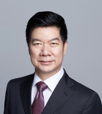
Mr. Yanbing Chen is the Vice Chairman and President of China Urban-townization Promotion Council. Mr. Chen is a researcher,visiting scholar and visiting professor at Stanford University. He has a Ph.D. in Economics. Mr. Chen has worked in the General Office of the State Council, the State Economic and Trade Commission, the State Administration for Industry and Commerce, and the State Administration College in China.In recent years, he has been mainly devoted to the research of China's new urbanization and characteristic towns. He has published more than 20 research articles about the new urbanization and characteristic towns in journals such as "Red Flag Manuscript", "Looking Weekly", "China Economic and Trade Guide" and "New Urbanization".
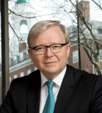
Mr. Kevin Rudd is the Chairman of International Towns Federation and Australia’s 26th Prime Minister (2007-2010, 2013) and Foreign Minister (2010-2012). Mr. Rudd is also Chair of the Board of the International Peace Institute, and Chair of Sanitation and Water for All. He is a Distinguished Fellow at Chatham House in London, a Distinguished Statesman with the Center for Strategic and International Studies in Washington DC, a Distinguished Fellow at the Paulson Institute in Chicago, and a member of the Comprehensive Nuclear Test-Ban Treaty Organization’s Group of Eminent Persons. Mr. Rudd is a member of the Concordia Leadership Council. He serves on the International Advisory Board of the Schwarzman Scholars program at Tsinghua University, and is an Honorary Professor at Peking University. Mr. Rudd is proficient in Mandarin Chinese. He also remains actively engaged in indigenous reconciliation.
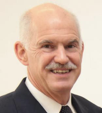
Mr. Papandreou is the Co-founder of Project Agora, the 182nd Prime Minister of Greece, the International Chairman of the Socialist Party and former Ministry of Foreign Affairs and Education of Greece. George was elected the 182nd Prime Minister of Greece, pushing for the modernization of Greece's national governance and leading Greece in coping with the European economic crisis. After leaving his post as Prime Minister, George remained active on the international stage and served as the International Chairman of the Socialist Party.George founded Symi Symposium, a seminar with the aim of reviving the education model of ancient Greek sages, bringing together political and academic luminaries from all over the world, discussing key regional and global issues, and cultivating young generations of global citizens and leaders.In 2018,George co-founded Project Agora on the foundation of twenty years of mentorship and experience accumulated at Symi Symposium.

Thomas Ridge is the Chairman of Ridge Global, LLC and a Partner of Ridge Policy Group, LLC. Following the tragic events of Sept 11, 2001, he became the first Assistant to the President for Homeland Security and on Jan 24, 2003, became the first Secretary of the U.S. Department of Homeland Security. Tom Ridge was twice elected Governor of Pennsylvania. He served as the state’s 43rd governor from 1995 to 2001. He served as Chairman of National Organization on Disability (NOD) and serves as Co-Chairman of the Blue Ribbon Study Panel on Biodefense, as well as other private and public entities. He graduated from Harvard with honors. He was drafted into the U.S. Army, where he served as an infantry staff sergeant in Vietnam, earning the Brone Star for Valor, the combat Infantry Badge and the Vietnamese Cross of Gallantry. He earned his law degree from Penn State University’s Dickinson School of Law. He was one of the first Vietnam combat Veterans to the U.S. House of Representatives, where he served six terms.
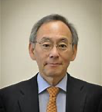
Steven Chu is the William R. Kenan, Jr., Professor of Physics and Professor of Molecular & Cellular Physiology in the Medical School at Stanford University. Dr. Chu was the 12th U.S. Secretary of Energy. He was personally tasked by President Obama to assist BP in stopping the Deepwater Horizon oil leak. Dr. Chu is the co-recipient of the 1997 Nobel Prize in Physics. He is a member of the National Academy of Sciences, the American Philosophical Society, the American Academy of Arts and Sciences, the Academia Sinica, and is a foreign member of the Royal Society, the Royal Academy of Engineering, the Chinese Academy of Sciences, the Korean Academy of Sciences and Technology and the National Academy of Sciences, Belarus. He is the President Elect of the American Association for the Advancement of Science.
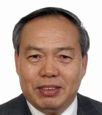
Xinli Zheng is a researcher, economist and former Vice Minister of Chinese Government. Prof. Zheng’s main research area is macroeconomic theory and policy. He has been engaged in economic theory and economic policy research for many years, and has fundamental and unique insights in the areas of planning and investment system reform, macroeconomic regulation and control, and medium and long-term development policies. In April 2009, he served as Executive Vice Chairman of the China International Economic Exchange Center and Vice Chairman of the China Urban-townization Promotion Council. In 2014, he was awarded as the top 10 of Economist in China by Economists Weekly.

ames O. Leckie is currently the Professor of Civil and Environmental Engineering and the Director of Center for Sustainable Development and Global Competitiveness at the Stanford University. Prof. Leckie has been on the Stanford Environmental Engineering faculty since 1970 and is an environmental chemist interested in the application of chemical principles to the study of pollutants behavior in natural aquatic systems and in engineered processes. His research contributions have been extensive in the areas of adsorption chemistry, human exposure analysis, and membrane science. In 2005, he became a member of the National Academy of Engineering, and received the American Society of Civil Engineering Rudolf Hering Medal in 1981. Presently, he is co-Director of the Singapore-Stanford Partnership program in Environmental Engineering & Science, and Director of the Center for Sustainable Development & Global Competitiveness at Stanford University.
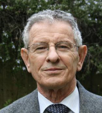
Marcus William Feldman is the Burnet C. and Mildred Finley Wohlford Professor of Biological Sciences, director of the Morrison Institute for Population and Resource Studies, and co-director of the Center for Computational, Evolutionary and Human Genomics (CEHG) at Stanford University. Marcus Feldman studied at the University of Western Australia from where he matriculated in 1959, and graduated (with majors in mathematics and statistics) in 1964. In 1966 he obtained Master of Science degree in mathematics from Monash University. He went to US to join a PhD programme at Stanford University and earned his degree in 1969 under the supervision of Samuel Karlin in the Department of Mathematics.In 1973, he originated the quantitative theory of cultural evolution, initiating a research program in cultural transmission and gene-culture coevolution. His own research into human molecular evolution such as in China led him to international recognition. He is the author of more than 625 scientific papers and several books on evolution, ecology, and mathematical biology.